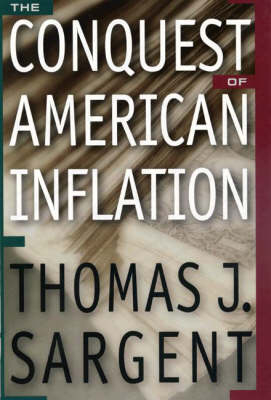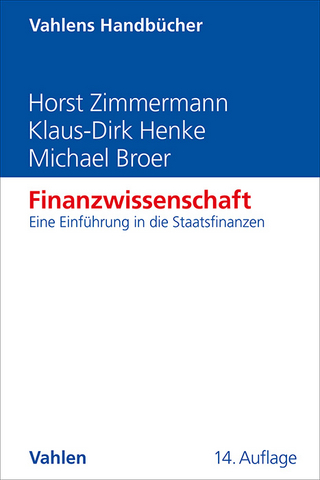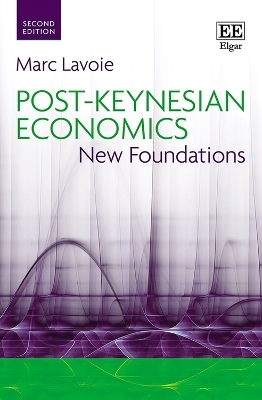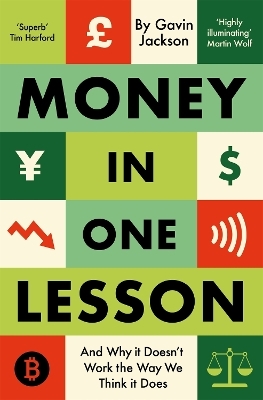
The Conquest of American Inflation
Seiten
1999
Princeton University Press (Verlag)
978-0-691-00414-3 (ISBN)
Princeton University Press (Verlag)
978-0-691-00414-3 (ISBN)
- Titel ist leider vergriffen;
keine Neuauflage - Artikel merken
Presenting an analysis of the rise and fall of US inflation after 1960, this book examines two broad explanations: the natural-rate hypothesis joined to the Lucas critique and a more traditional econometric policy evaluation modified to include adaptive expectations and learning.
Presenting an analysis of the rise and fall of U.S. inflation after 1960, this book examines two broad explanations for the behaviour of inflation and unemployment in this period: the natural-rate hypothesis joined to the Lucas critique and a more traditional econometric policy evaluation modified to include adaptive expectations and learning. The text begins with an explanation of how American policymakers increased inflation in the early 1960s by following erroneous assumptions about the exploitability of the Phillips curve - the inverse-relationship between inflation and unemployment. In subsequent chapters, it connects a sequence of ideas, such as self-confirming equilibria, least-squares and other adaptive or recursive learning algorithms. The author synthesizes results from macroeconomics, game theory, control theory, and other fields to extend both adaptive expectations and rational expectations theory, and he explains postwar inflation in terms of drifting coefficients. He interprets his results in favour of adaptive expectations as the relevant mechanism affecting inflation policy. This book is intended for academics, graduate students, and professional economists.
Presenting an analysis of the rise and fall of U.S. inflation after 1960, this book examines two broad explanations for the behaviour of inflation and unemployment in this period: the natural-rate hypothesis joined to the Lucas critique and a more traditional econometric policy evaluation modified to include adaptive expectations and learning. The text begins with an explanation of how American policymakers increased inflation in the early 1960s by following erroneous assumptions about the exploitability of the Phillips curve - the inverse-relationship between inflation and unemployment. In subsequent chapters, it connects a sequence of ideas, such as self-confirming equilibria, least-squares and other adaptive or recursive learning algorithms. The author synthesizes results from macroeconomics, game theory, control theory, and other fields to extend both adaptive expectations and rational expectations theory, and he explains postwar inflation in terms of drifting coefficients. He interprets his results in favour of adaptive expectations as the relevant mechanism affecting inflation policy. This book is intended for academics, graduate students, and professional economists.
Thomas J. Sargent is Donald Lucas Professor of Economics, Stanford University, and Senior Fellow at the Hoover Institution at Stanford. He is the author of many articles and books on macroeconomic theory, most recentlyBounded Rationality in Macroeconomics.
| Zusatzinfo | 25 line illus., 6 tables |
|---|---|
| Verlagsort | New Jersey |
| Sprache | englisch |
| Maße | 152 x 229 mm |
| Gewicht | 425 g |
| Themenwelt | Wirtschaft ► Volkswirtschaftslehre ► Finanzwissenschaft |
| Wirtschaft ► Volkswirtschaftslehre ► Ökonometrie | |
| Wirtschaft ► Volkswirtschaftslehre ► Wirtschaftspolitik | |
| ISBN-10 | 0-691-00414-5 / 0691004145 |
| ISBN-13 | 978-0-691-00414-3 / 9780691004143 |
| Zustand | Neuware |
| Haben Sie eine Frage zum Produkt? |
Mehr entdecken
aus dem Bereich
aus dem Bereich
eine Einführung in die Staatsfinanzen
Buch | Hardcover (2024)
Vahlen (Verlag)
39,80 €
New Foundations
Buch | Softcover (2022)
Edward Elgar Publishing Ltd (Verlag)
64,75 €
and why it doesn't work the way we think it does
Buch | Softcover (2023)
Pan Books (Verlag)
13,70 €


